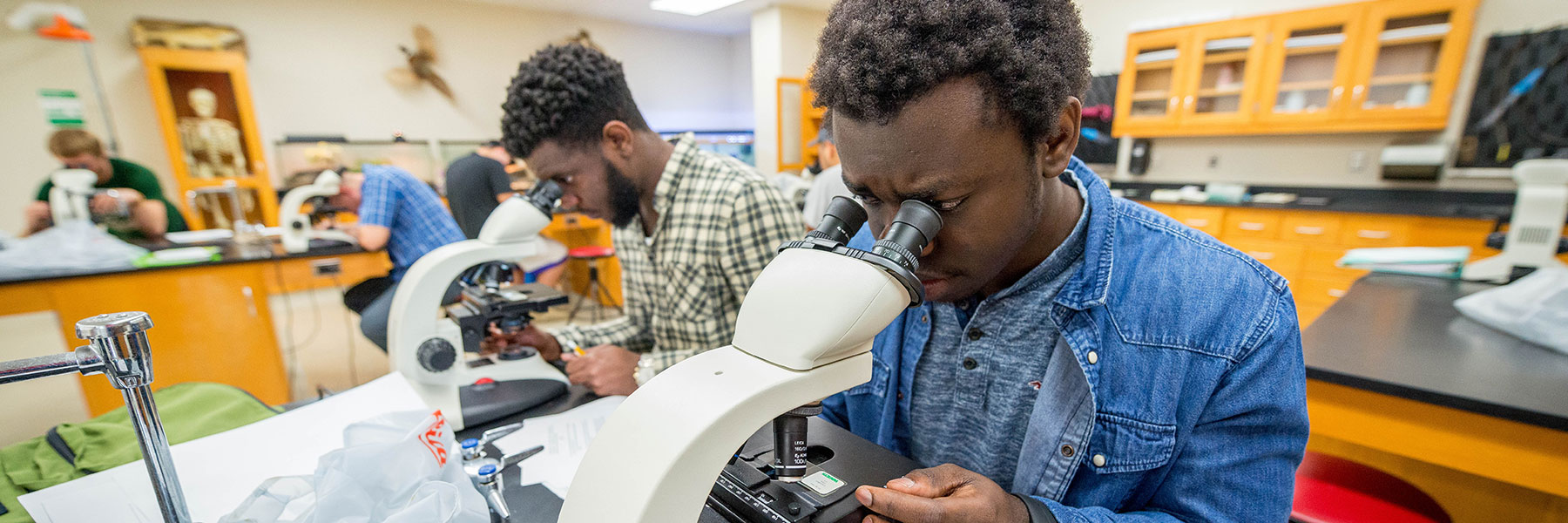Play Video
Students interested in attending medical school most often complete a biology or chemistry major, though there is no required major. Most medical schools prefer students with a broad undergraduate education that includes a number of required and recommended courses. A nursing major is also available.
Typical Required Coursework:
- Two semesters of general chemistry (CHEM113 General Chemistry I and Lab and CHEM114 General Chemistry II and Lab)
- Two semesters of organic chemistry (CHEM215 Organic Chemistry I and Lab and CHEM216 Organic Chemistry II and Lab)
- One semester of general biochemistry (CHEM323 General Biochemistry and Lab)
- Two semesters of general biology (BIOL151 General Biology I and Lab and BIOL152 General Biology II and Lab)
- One semester of statistics (MATH120 Introduction to Statistics)
- One semester of math (MATH151 Calculus I recommended)
- Two semesters of college physics (PHYS151 College Physics I and Lab and PHYS152 College Physics II and Lab)
- One writing intensive upper division course in the humanities or social sciences
Recommended:
- BIOL221 Human Anatomy and Lab
- BIOL222 Human Physiology and Lab
- BIOL340 Genetics and Lab
- BIOL352 Immunology
- BIOL360 Microbiology and Lab
- BIOL491 Introduction to Human Gross Anatomy
- PSYC100 General Psychology, PSYC120 Human Growth and Development, or PSYC350 Abnormal Psychology
It is suggested that students finish the required coursework by their junior year so they are prepared to take the Medical College Admission Test (MCAT) before their senior year.


